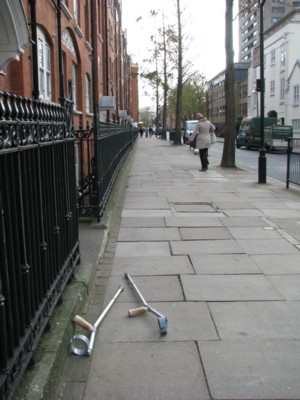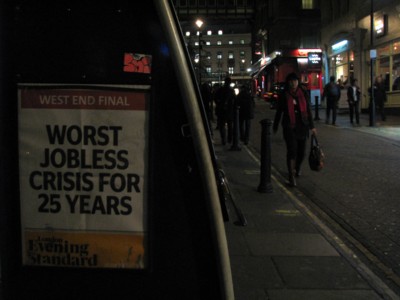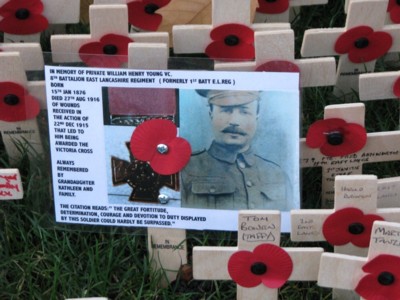We are developing the social individualist meta-context for the future. From the very serious to the extremely frivolous... lets see what is on the mind of the Samizdata people.
Samizdata, derived from Samizdat /n. - a system of clandestine publication of banned literature in the USSR [Russ.,= self-publishing house]
|
I have already quoted from and commented on The Ninth: Beethoven and the World in 1824 a couple of times here. Now I’ve read it. Unless I’m being paid to read a book, I only read it to the end if I’m enjoying it, so point one to make about this book is that I wasn’t paid to read it. Samizdata writers and readers are not brought together by a shared fascination for classical music and the world in which it was created and had its first impact, so I don’t know if you would also enjoy reading this book. But I can say a bit about why I did.
I know Beethoven’s music, and the Ninth Symphony in particular, quite well, possessing as I do a large classical CD collection containing lots of Beethoven and more than a few recordings of the Ninth. A painlessly entertaining way to learn more about classical music in general, and Beethoven and his Ninth Symphony in particular, is, for me, always welcome. This book was painless partly because it is all written in a language I can easily follow, English. Many books about classical music use lots of musical notation. I can just about decipher such symbols, but seldom with the fluency that is necessary immediately to get the points an author is trying to make with them. Sachs could easily have peppered his text with such hieroglyphics, having himself been a conductor before he became a writer. He did not. He relied on words. He also avoids using Italian words, saying very loud rather than fortissimo, and so on.
This book is also painless in being quite short. 225 pages, including all the extras. I’m a slow reader, so that, for me, was another plus. → Continue reading: Beethoven’s Ninth – before and after
The tight financial integration of the eurozone, together with the essentially political decision to cement all domestic claims into a foreign currency (the euro) was deliberate: thereafter no sovereign could expect to regain independence. A razor-wire fence was erected to prevent members from leaving the enclosure. Now that some inmates are proving excessively troublesome, that same razor wire is a formidable barrier to getting them out.
– G. R. Steele
Yes, there are a couple of interesting recent postings up at the Adam Smith Institute blog, both involving falling prices and falling profits.
Tim Worstall writes about why the solar power business is not proving very profitable. This is not, he argues, because solar power is rubbish. It’s just that making the kit to capture it is not that hard, the price of such kit is falling all the time, and making that kit won’t be very profitable.
The other falling prices and falling profits ASI posting is by Sam Bowman, who links to a piece in the Atlantic Cities blog about how a sharp drop in the price of cocaine caused a similarly sharp drop in the murder rate in the USA, during the 1990s. The business stopped being nearly so profitable and became a lot less worth killing for. (The reason the price of cocaine dropped was that smuggling got cleverer.)
I have very little to say about how true either of these claims are. Mostly my reactions are: interesting! Can anyone here be any more informative than that?
I believe in legalising drugs no matter what. But if it is true that a freer market in drugs, and consequent fall in their price, already has reduced the crime associated with illegal drugs, then that surely strengthens the arguments that I can use to support what I already believe in.
As for solar power, is solar power really about to become economically rational in a big way? If so, how much is that reality talking, and how much the politically rigged and politically deranged energy market?
I took this photo yesterday afternoon, not far from my home in London:
Maybe I am being very dim, but what happened here? Did the former user of these crutches have some kind of accident and get whisked off in an ambulance? Did he (or she) encounter a faith healer, and thanks to him (or her), make a miraculous recovery and thus no longer need the crutches? Did the crutches fall off a lorry, and then get put helpfully on the pavement, to stop them getting run over? I strongly suspect that there is an uncontroversially obvious explanation for this circumstance, and that when a commenter provides it I will look very silly, but I can’t now think what it could be.
I remember, about a quarter of a century ago, speculating that the way things were heading, in Britain, all “drugs” would eventually be legal, except tobacco. We seem …
All smoking in cars should be banned across the UK to protect people from second-hand smoke, doctors say.
The British Medical Association called for the extension of the current ban on smoking in public places after reviewing evidence of the dangers.
… to be on course for exactly this arrangement:
Ex-MI5 chief Baroness Manningham-Buller is set to call for cannabis to be decriminalised in a speech.
The crossbench peer believes that only by regulating the sale of cannabis can its psychotic effects be controlled.
She is also expected to say the “war on drugs” has been “fruitless”.
I am reluctant to urge consistency in these matters. That might mean them banning the lot, which actually seems a rather more likely outcome. And note that the Baroness favours legalisation because illegal drugs are the sort over which They have less control. So both proclamations are consistent with one another, in wanting Them to have more control.
This evening I dined with a friend, and on my way there took this snap of an Evening Standard headline. A couple of years ago I thought that the Evening Standard itself – never mind these billboards – would soon be extinct. But although diminished in number, these headlines are still a familiar part of the London scene, now as then usually telling of catastrophe of one kind or another, public or personal. This evening’s offering was no exception:
Here‘s the story. Depending on your preferred explanation for this sad circumstance, you’ll pick out a different bit of the story. I pick this:
The shocking new total was published today as Bank of England governor Sir Mervyn King warned Britain is in danger of sliding back into recession.
He downgraded his growth forecasts again, saying the economy will expand by one per cent this year and next, a fraction of the hoped-for rate.
As Instpundit would say: Unexpectedly! It would appear that quantitative easing is proving less than completely stimulating. We here are not shocked by this bad unemployment news.
For a little light relief, here’s a snap I took later, on my way home:
The advertising trade was bound to take advantage sooner or later of the wave of health and safety signage that is such a feature of British life just now. This is the first time I’ve noticed it, but I’m sure others have seen such things many times already.
I have long thought, first, that the United Kingdom has for some time been heading towards being the Non-United Kingdom, and second, that this would probably be a very good thing.
If such a separation is indeed happening, then what is causing it is the end of the British Empire. That and what followed around half a century later (i.e. around now), probably as an inevitable next step, namely the abandonment of the English-stroke-British attempt to remain a top ranking Great Power.
The British Empire meant that lots of Scots wanted to be attached to England, to get in on all the deals involved. Then Britain, empireless but still trying to remain a Great Power, needed Scotland to remain in. Scotland provided and still provides military manpower, and projected and still projects British power in northerly and westerly and easterly directions, in a way that England without Scotland will never be able to match. Could England without Scotland (to say nothing of Northern Ireland) have won the Battle of Atlantic? Hardly. Could England then have even threatened to win the re-run of that battle that from the end of WW2 until the collapse of the Soviet Union, dominated British naval thinking, and Britain’s strategic thinking generally? Again, hardly. For as long as the Cold War lasted, the English plus whichever local allies went along with them, were determined to square up to the Russians and thus keep their seat at that Top Table that politicians are all so very keen to be seen sitting at. A dis-United Kingdom was a non-starter, for contriving all that.
But now? Russia remains a looming monster, or a huge wreck if you prefer the Perry de Havilland take on Russia, which I think I probably do. But even if you think that Russia remains very strong, it no longer fancies itself as a global ideological magnet, bankrolling and talking up every nutter in the civilised world with a mad plan to derange civilisation. It no longer even goes through the motions of attempting to conquer everywhere else. Russia is now just another Problem, along with government debt and bank turmoil, the Euro, the Dollar, the Pound, China, energy shortages or “climate change” (again according to taste), crime, schools’n’hospitals, etc. etc. etc., rather than The Problem.
The global ideological derangement torch has now been seized by Mad Mullahs, and they won’t be re-fighting the Battle of the Atlantic any time soon. Nor do they have nearly so many nuclear bombs, or nearly such potent means of chucking them about in the world. They require very different strategies. Given the weaknesses and difficulties faced by the Mad Mullahs, and given the weaknesses and difficulties faced by us, their enemies, I wouldn’t now want to call them anything more than just another Problem, among all the others.
Other career paths for English politicians to that Top Table have since been identified, based less on British power and more on personal skills and individual contributions to the new global elite. To put it bluntly, you don’t need to be part of one of the old empires in order to participate in running the New World Order.
England’s Great Power-ish inclined warriors and foreigner-scarers, of greatly varying social grandeur from Air Marshals to ex-army pub landlords to army-fan dog-owning T-shirted denizens of south of England housing estates, are being presented with a fait accompli. This warrior tendency has traditionally been very pro the Union with Scotland, but is now being being starved of resources and humiliated by its consequent failures to make very effective uses even of those resources that it does still receive. Its last serious throw of the dice was the Falklands War. Since then, Britain been militarily “powerful” by supporting America, which is not nearly so satisfying, or so impressive to spectators. Britain’s more recent military escapades, against those Mad Mullahs, seem to have accomplished, and to be accomplishing, less and less with each passing year. Chasing terrorists in foreign parts is all well and good, but it seems foolish to be trying to impose democracy upon such places as Afghanistan, given the problems we now have domestically. And even if you don’t agree about that, you can hardly deny that most English people surely now do think thus. The Will to Great Power, to adapt Nietzsche, seems more and more to be lacking in Britain. Too costly. Not worth it. Time to consign all that to the history books.
And with it, the overriding imperative for England and Scotland to remain politically attached to one another.
Meanwhile, that strand of English opinion which favours trade, free markets, and so on, is, in the absence of any continuing great power logic to justify union with Scotland, likely to become ever more irked but it. This tradesman tendency, so to speak, of free market inclined businessmen, City of Londoners, shopkeepers, and bookish students who like reading Hayek and Friedman and, these days, clicking onto mises.org, has lately suffered a severe dose of Scottish moralistic … I don’t think anti-Englishness is too strong a phrase for it, at the hated hands of Gordon Brown. More and more they (and count me in too) now think: well Jock, if you want out, then you just go ahead and get out. We might then get the sort of government we want, instead of having our choice vetoed by you all the time.
The above thoughts were triggered again in my head just last week, by a recent report (thank you Bishop Hill), which said that if Scotland does go independent, it will as a direct consequence have to stop being nearly as crackpottedly ridiculous as it is now about “renewable” energy, i.e. the sort of energy of which there is not now and for the foreseeable future never will be enough. Suddenly, I found myself becoming a passionate Scottish Nationalist, if only to put the wind up the idiotic wind-farmer tendency. Although, Bishop Hill jokes that such greenery in Scotland is actually a plan to keep the Union with Scotland going, by making Scottish independence impossible.
For wind-farming in particular, read Scottish economic thought and policy generally. Libertarians like me have another reason to want to see Scotland separate itself from England, which is that once the indignity of being told by annoying English people like me to favour more rational economic theories and economic policies has been removed, the Scots, once independent, will then almost certainly become far more ready to tell each other to think and to behave in an economically more sane manner.
If Scotland goes independent, then Scotland will, for reasons of sheer economic self-preservation, have to stop being a huge drag on the global pro-free-market tendency in general and the libertarian movement in particular, and might even become a net contributor to such tendencies. Again.
Final thought. Where will all this leave UKIP? Changing its name for a start. But then, as the EIP, much more likely to get what it wants. And that’s another reason for England to eject Scotland from its union with England. It would then be a lot easier for England to eject itself from the EU.
Earlier today, Remembrance Sunday and a rare sunny day after many grey ones, I walked to Westminster Abbey, to take photos of the commemorations outside the Abbey of our war dead:
As every year around this time, Britain remembers its war dead with smal wooden crosses, almost all with a poppy attached, and a small written message, of a name or a note of remembrance.
Not surprisingly, given how many died, there are a lot of crosses:
Some of the messages said that every one of the dead was a “hero”. Maybe. But there can be no doubting that these men, with “VC” after their names, definitely were, whatever you may think of the wars they were fighting:
As was this man:
There are not many individual commemorations of this sort, with a personal photo. More common were clutches of crosses, with the bigger lettering used only for the names of the regiments of the men commemorated.
I liked this regimental sign, embodying what tanks looked like on the very first occasions when they took to the battlefield:
And once I started noticing in particular these regimental signs, I particularly noticed this one:
Artists’ Rifles? Artists?
Yes, apparently these men were, to begin with anyway, painters who chose to swap their paintbrushes for rifles and their tubes of paint for bullets:
The first ‘Captain’ of the Regiment to be elected was Lord Bury (later the Earl of Albemarle) but he did not remain in office for very long. The first Commanding Officer in 1860 was Henry Wyndham Phillips, the painter and amongst the early distinguished ‘Artists’ were John Everett Millais, G F Watts, Val Prinsep, Frederick Leighton (later Lord Leighton, CO after Henry Wyndham Phillips and a future President of the Royal Academy), R W Edis (a future CO), Holman Hunt and William Morris.
However, the artistic influence somewhat declined:
The influence of the Pre-Raphaelite group, however, appears to have been more social than military! As years went by the composition of the Regiment was broadened to include many other professions. By 1893, for example, painters and sculptors represented less than 5 per cent. of the membership with architects 12 per cent., lawyers 12 per cent., doctors 10 per cent. and civil engineers 6 per cent.
Blog and learn.
Imagine that happening now.
I know I sometimes rather overdo the cricket here, but this, from one of the Cricinfo blogs, really is quite amusing:
Now that the man’s gone, the name may soon follow. The Punjab Olympic Association has asked the provincial chief minister to rename the Gaddafi Stadium in Lahore, in keeping with increasing public opinion against associating the historic venue with the former Libyan dictator. The ground was originally called Lahore Stadium but was renamed following Gaddafi’s visit to Pakistan in 1974. Now it’s time to change things back, says association secretary Idrees Haider Khawaja. “I don’t think his profile is inspirational enough to link with our cricket stadium’s identity,” Khawaja told ESPNcricinfo.
No, I guess it’s not, any more. I further guess that they called it the Gaddafi Stadium because they were inspired by a flow of money from Gaddafi, to such persons as those who took it in turns to be Punjab’s provincial chief minister, and that this source of inspiration has now dried up, what with Gaddafi being killed and all.
In other words, the reason he Gaddafi Stadium won’t be the Gaddafi Stadium any more is the same reason that the Oval, just across the Thames from where I live in London, was called the Brit Oval, but is now not. In the case of the Oval, it was all out in the open. In Lahore, the arrangement was, I surmise, somewhat more hidden. Which puts news like this, about bent Pakistani cricketers being jailed, into its national context. (I wrote about that here (good comments on that one also) when that story first emerged.)
It will be interesting to see what they decide to call the Gaddafi Stadium next.
In London right now, it is an hour or more past 9 am. But in Cape Town, South Africa, just over an hour ago, it was 11:11 am, on the 11/11/11 (November 11th 2011), and South Africa needed 111 runs to win the international cricket match that they were playing against Australia. South Africa, sadly, were not 111-1, chasing 222. They were 126-1, chasing 236. So, time and date oddities aside, a cricket match is drawing to a calm, even predictable end. Right? Well, yes. But yesterday, 10/11/11 or 11/10/11 or whatever you call yesterday, it was very different.
Those baffled and/or repulsed by cricket and its arithmetically obsessed followers like me should probably skip the next few paragraphs. Summary: this has been one weird test match. But now, skip down to where it says: “Okay, here is my serious Samizdata-type point.”
Okay cricket nutters, on we go with the story. Here is the sort of thing that was happening in Cape Town yesterday:
W W . 4 . . | W . . . . . | . . W . . . | . . . 4 . W | 1 1 . W
At the end of the first day of this test match, Australia had reached a rather meagre 214-8, but on the morning of the second day, yesterday, they did better, getting to 284 all out, thanks to more excellent batting by their new captain, Michael Clarke, who was last out for 151. South Africa then progressed to 49-1 at lunch. So far so normal.
About an hour later South Africa were all out for 96 having only just avoided the follow-on, the above WW stuff being a slice of that action. Australia then went into bat, and at the tea interval were themselves struggling on 13-3. Then, in no time at all after tea, they had slumped to a truly catastrophic 21-9. They then recovered, if that’s the right word, to the dizzy heights of 47 all out. Another action slice:
W . . 3 . . | . . . W . . | . W . W
The South African Vernon Philander, playing in his first test, took five wickets for fifteen runs, bringing his total for the match to eight. Quite a start. Earlier Shane Watson had taken five for seventeen for Australia.
A Cricinfo commenter suggested that Australia should declare at tea time, setting South Africa two hundred to win in very adverse conditions. He didn’t say, an hour later, that Australia should have declared at tea time. He said it at tea time, when Australia were 13-3. And they probably should have! Australia having batted successfully in the morning, South Africa began their second innings and ended this bizarre day with similar batting success, reaching 81-1 by the close. Today, they began needing only a further 155 to win. If South Africa do win, they’ll be thanking their last wicket pair, Dale Steyn and Imran Tahir, who added thirteen and saved that follow-on. Take away that stand, and South Africa might have lost by an innings by now. As it now stands, and given that they have made a fine start this morning, South Africa now look sure to win.
If, despite being a cricketphobe, you read all that and would like to know approximately what it means, think of it as the cricketing equivalent of a world cup soccer quarter-final match between, say, Italy and Germany, where the scorecard after half and hour was 0-0, but by half time it was Italy 6 Germany 0, and then about fifteen minutes later it was Germany 8 Italy 6, followed by twenty entirely goalless minutes with Germany looking favourites to play out time and win it, 8-6. Calm, mayhem, even greater mayhem in the opposite direction, calm. Bizarre, right? I’ll say.
Okay, here is my serious Samizdata-type point. (Welcome back, normals.)
My point is that the internet is uniting the world into one huge ultra-high-density global super-city. Not a global village, because that would suggest that everyone knows what everyone else is talking about, and, as the above few paragraphs illustrate very adequately, that is not at all what is happening. Most of us are baffled by most of what goes on in our Global Super-City, most of the time. But the thing is, cricket fans like me can now tune into the fine detail of matches which we would never before have been able to find out about. And you can likewise easliy tune into the fine detail of whatever it is that gets you excited and has you interrupting your normal daily routine. → Continue reading: Cape Town cricket mayhem in real time – and a united world
The only really safe investment is wine, at times like these. If it goes up, you make a profit; and if it goes down you can drink it.
– Harry Hutton
Incoming email from an acquaintance:
I just saw Robert Peston on the BBC 1 News at 10pm. He was recommending that the ECB come to the rescue of Italy and Greece on the ground that it is the only EU institution “capable of creating unlimited resources”. Not unlimited money; unlimited resources! It’s magic.
Somebody should Occupy the BBC.
A BIT LATER: I just googled “ecb unlimited resources”. Alas, plenty of hits. Try it. Peston is only expressing a general mood. A general mood of complete insanity, but a general mood.
|
Who Are We? The Samizdata people are a bunch of sinister and heavily armed globalist illuminati who seek to infect the entire world with the values of personal liberty and several property. Amongst our many crimes is a sense of humour and the intermittent use of British spelling.
We are also a varied group made up of social individualists, classical liberals, whigs, libertarians, extropians, futurists, ‘Porcupines’, Karl Popper fetishists, recovering neo-conservatives, crazed Ayn Rand worshipers, over-caffeinated Virginia Postrel devotees, witty Frédéric Bastiat wannabes, cypherpunks, minarchists, kritarchists and wild-eyed anarcho-capitalists from Britain, North America, Australia and Europe.
|












